Russia to ‘continue Syria air strikes’
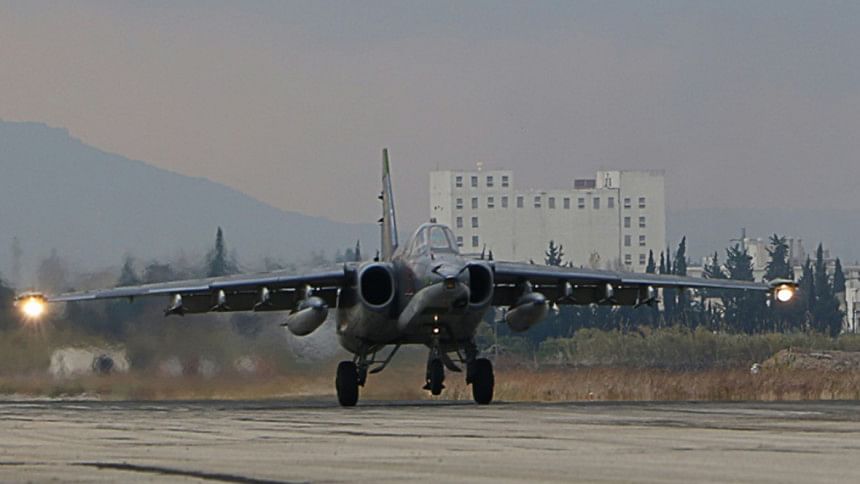
Russia will continue air strikes in Syria despite the withdrawal of most of its forces, a senior official has said.
Deputy Defence Minister Nikolay Pankov said it was too early to speak of defeating terrorism, after a campaign that has bolstered Syria's government.
Russian forces started leaving Syria on Tuesday after Monday's surprise announcement by President Vladimir Putin. Some have now landed in Russia.
A second day of peace talks is being held aimed at resolving the conflict.
UN Special Envoy Staffan de Mistura, who is mediating in the talks, welcomed the Russian decision.
"The announcement by President Putin on the very day of the beginning of this round of Intra-Syrian Talks in Geneva is a significant development, which we hope will have a positive impact on the progress of the negotiations," he said.
Russian defence ministry video showed the first group of aircraft taking off from Hmeimim air base in Syria on Tuesday morning and in flight.
Hours later, Russian TV showed planes arriving in the southern Russian city of Voronezh, where they were greeted on the tarmac by priests and crowds waving balloons.
Su-24 tactical bombers, Su-25 attack fighters, Su-34 strike fighters and helicopters were returning home, the TV said.
But Pankov said a Russian air group would remain.
"Certain positive results have been achieved... However, it is too early to talk about victory over terrorism. A Russian air group has the task of continuing to strike terrorist facilities," he was quoted by Ria news agency as saying.
The war in Syria has raged for five years and claimed the lives of more than a quarter of a million people. Millions have fled the conflict, but nearly 18 million people still live in the war-torn country - so what is life like for them?
Why did Russia launch an air campaign in Syria?
Russia is one of President Bashar al-Assad's most important international backers and the survival of his government is critical to maintaining Russian interests in Syria. Russia has a key naval facility which it leases at the port of Tartous and has forces at the Hmeimim airbase in Latakia.
In September 2015, with rebel forces advancing on Latakia, Russian forces launched an air campaign which President Vladimir Putin said was aimed at "stabilising" the Syrian government and creating conditions for "a political compromise" that would end the five-year conflict.
What does Russia say its intervention achieved?
In March 2016, Putin ordered the "main part" of Russia's forces to withdraw from Syria, saying their mission had "on the whole" been accomplished.
Defence Minister Sergei Shoigu said Russian aircraft had flown more than 9,000 sorties over almost six months, killing more than 2,000 "bandits" and helping Syrian government forces regain control of 10,000 sq km (3,860 sq miles) of territory, including 400 population centres.
The claims have not yet been independently verified, but it is clear the air campaign turned the tide of the war in favour of Assad, allowing Syrian government ground forces to regain territory around Latakia, in the southern province of Deraa and around the divided northern city of Aleppo.
What do critics say?
Moscow stressed that its air strikes only targeted "terrorists", but activists said Russian aircraft had mainly bombed Western-backed rebel groups and civilian areas.
In December, Amnesty International said Russian aircraft appeared to have directly attacked civilians by striking residential areas with no evident military target, which it warned might amount to war crimes. Russia's defence ministry dismissed the report as containing "fake information".
However, the UK-based Syrian Observatory for Human Rights reported in early March that 1,733 civilians, including 429 children, had been killed in Russian air strikes, along with some 1,492 rebels and members of the al-Qaeda-affiliated al-Nusra Front, and 1,183 Islamic State (IS) militants.

 For all latest news, follow The Daily Star's Google News channel.
For all latest news, follow The Daily Star's Google News channel. 

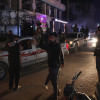
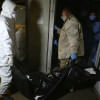
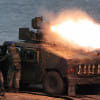
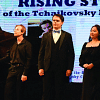



Comments